Fielding University Press’ Driving Social Innovation:
An Interview with the Co-Editors
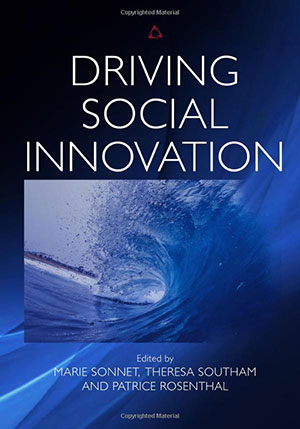 Fielding University Press recently released Driving Social Innovation: How Unexpected Leadership is Transforming Society, a publication that weaves the subject of leadership in varying contexts and guides readers in managing social changes, precarity, and uncertainty in a changing and transforming world.
Fielding University Press recently released Driving Social Innovation: How Unexpected Leadership is Transforming Society, a publication that weaves the subject of leadership in varying contexts and guides readers in managing social changes, precarity, and uncertainty in a changing and transforming world.
Edited by Marie Sonnet, Ph.D., Theresa Southam, Ph.D., and Patrice Rosenthal, Ph.D., the book centers on how individuals and organizations can bring leadership and social innovation to our communities and organizations, when we live amid powerful forces beyond our control. This collection of chapters rewards the reader with surprise and insight into why unexpected leadership matters.
In this interview, we sat down with all three co-editors for insight on why this book is a pressing read, how it complements social justice and other values, and how people in real-life situations can implement what they read in the book.
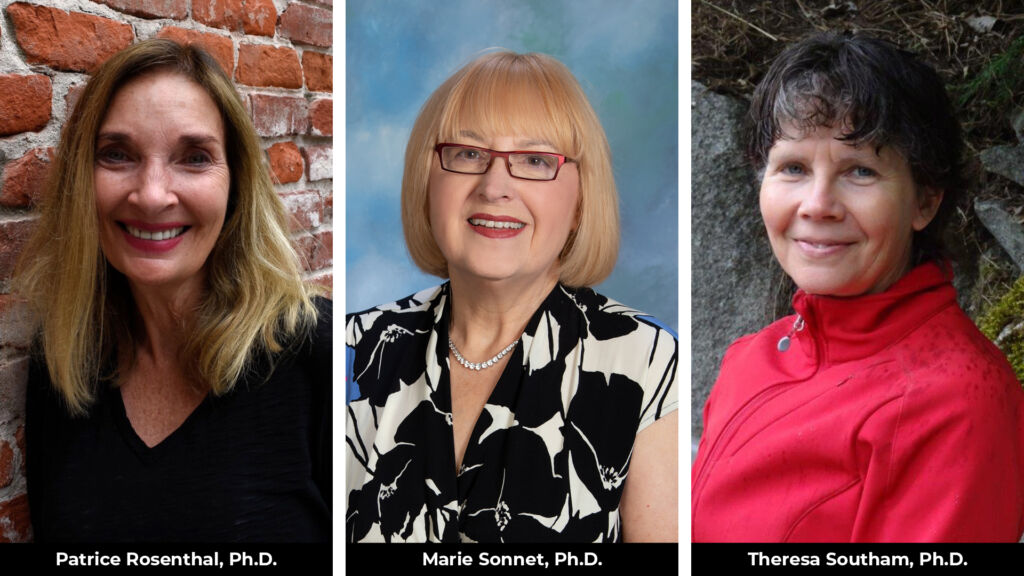
What led you to create Driving Social Innovation? What is the background story?
PATRICE: This collection was very much the brainchild – and the heartchild – of Theresa Southam and Marie Sonnet. They invited me to work with them as a faculty partner on the project, and I jumped at the chance. I have immense respect for Theresa’s and Marie’s creativity in imagining this volume.
THERESA: Marie and I knew each other, and she had helped with my dissertation. So, we had an already established friendship and were both deeply affected by everything going on around us, especially during 2020. At the same time, we began talking about our connection to Fielding, through the Institute for Social Innovation (ISI), and how we could deepen that relationship with the ISI Fellows and with each other. I told Marie about my experience working in a group on chapters for a book. They came together across institutions by working on chapters, landing a special issue, and then publishing multiple chapters in these teams.
MARIE: There’s a very formal process for requesting proposals. We had to have a good idea about what we wanted to write about and had to have our faculty connection. The subtitle, “How Unexpected Leadership is Transforming Society,” is important. It really is at the heart of this work, as well as social justice. Theresa was familiar with Martha Nussbaum’s Capabilities Framework as well, and we asked the authors to work with that model.
PATRICE: Their vision was to explore how precarity in our world drives both the need and possibilities for social innovation. They wanted to explore how leadership arises in unexpected people, forms, and places to create paths towards renewal – and what this looks like in different settings in the world. They assembled an excellent group of authors and researchers, mainly Fielding alums. Together, we were able to bring this excellent volume into the world. It’s been a pleasure and an education.
How does this work tie into social justice and other core values and conversations?
PATRICE: Social justice – what that looks like and how it can be achieved – is at the center of this monograph. The purpose of the book is to explore how precarity in the world drives the need for social innovation, and how social innovation can rise in unexpected ways and forms. This links, in turn, to ongoing conversations about leadership. Particularly, it shows how contemporary forms of leadership are presenting different faces, forms, and intentions compared to traditional leadership of the hierarchical and “heroic” kind.
MARIE: Also, Fielding and the Institute for Social Innovation are about creating a more just and sustainable world. The “more just world” component means a lot to us. It’s why I came to Fielding, and I suspect Theresa was attracted similarly. We wanted to continue the ISI’s work and accelerate and accentuate that mission among the ISI Fellows, all of whom have that common connection. It seemed like a productive idea that would also advance the Institute, as well as Fielding’s core mission.
THERESA: Every group has a right to the ability to experience belonging and be with each other, living in concern for other species. To be able to play, to be able to control one’s own environment. Having all these things in mind is essential. The kind of leaders that arose out of the chapter proposals were not the heroic leaders. These were not the leaders of white-male privilege. In many cases, these were leaders that are unexpected leaders, and those core values really resonated with them.
What do you mean by “unexpected leadership,” and how will the book’s chapters reveal that premise to the reader?
PATRICE: We use the term “unexpected leadership” to signal that this is leadership that departs in important ways from the more established picture of an individual (usually white and male) with positional power and a “heroic” mien. The book reveals how leadership for social innovation comes in different embodiments (from different social identities), different shapes (more collective and circular), and moves toward different ends (human and community flourishing, social justice). The chapters will reveal this promise to the reader through explorations embedded in specific contexts – ranging from small towns, the clinical psychology profession, elite leadership development, teams in global organizations, community work in Tanzania, student-led communities in higher education, and many more.
THERESA: Throughout this book process and our own research, we discovered there were issues of precarity, whether it was racial injustice, ageism, unjust governance, unfair structures, people living with disabilities who were not getting the kind of support that they needed, child abuse, and more. So, these people were usually part of or adjacent to the population. Remarkably close to the actual population that was suffering. It was many steps upward to be the “heroic” leader, but they could be “unexpected” ones.
MARIE: Models for unexpected leadership aren’t hierarchical, formal, positional, or paid. In many cases, there are leadership models that are more circular, collaborative, feminine, Indigenous, and non-Western. However, we saw evidence of other types of leadership that aren’t necessarily appreciated or valued in the hard-charging, profit-driven capitalist systems of the West.
Why did you choose to release this book through Fielding University Press, and what are the benefits of releasing a publication with the Press?
PATRICE: We are Fielding-folk and were thrilled to be published through the Fielding University Press. Through the Press, we were availed of Jean-Pierre Isbouts’ and Cathie Labrador’s amazing expertise, professionalism, and guidance. It was also a chance to promote the excellent learning community that is Fielding Graduate University and to highlight the important research of our spectacular alums.
THERESA: Marie had some experience with Fielding University Press, so that was huge. I don’t think we could have done it without Marie’s experience. There’s a whole technical aspect to this process that is incredibly time consuming, and she devoted her time volunteering to do that work. Fielding University Press is associated with the ISI, and we wanted to invest in more integration between departments at Fielding. The University Press is there to publish faculty and to get the word out about these amazing faculty that we have at Fielding, and we saw it as an opportunity to have alums find a place to get started. Having a leg up by having a chapter in a book is going to be an especially crucial step to continuing alums’ work. After I graduated in February 2020, I wanted to use this momentum to contribute. This was one of the first steps to continue contributing and collaborating in my post-doctoral work.
MARIE: I graduated in 2016 and can still benefit from an academic affiliation with Fielding through the ISI Fellows. I can stay connected to the practice of research and working with academic colleagues. This is a remarkable example of fulfilling the lifelong learning promise that Fielding makes to its students. And we are living that.
How will this book help real people in real situations as they drive social innovation in their own environments? How do you hope it will drive change?
PATRICE: This book is a piece of scholar-practitionership. In that, it integrates cutting-edge scholarship on leadership, social innovation, and social justice with reflection-on-action in diverse contexts. It can help spur curiosity about needs and possibilities in various contexts, frame problems and possibilities in productive ways, and pose specific kinds of actions and programs to drive innovation. Through evaluation of programs and ideas, the book can be a resource both for creating and course-correcting approaches to social innovation.
MARIE: We want people to know that whatever you’re doing in your circumstance is leading. You are a leader, and I don’t think we often recognize everyday moments as leadership. We think of it as something more, something less, or maybe something that doesn’t have importance to be considered leadership. But, you are leading, and that can mean everything in your circumstance, community, or organization. You can change lives, and possibility creates community, social, and innovative change beyond what you might realize.
What is one thing that you learned during the process of co-editing this book?
THERESA: I learned more examples of how everyone matters. Everybody who wanted to contribute to this collaborative effort matters. I feel like Patrice, Marie, and I grew quite close together. One of the things that held us together is that every time there was a decision, we worked together and built upon the trust we have with one another.
MARIE: And I think it’s an example of our persistence and resilience. When you stay with people for a year and a half, you go through all the cycles in your life, plus theirs, too.
THERESA: I’m proud that we worked through precarity with the social justice idea in mind that everybody counts. There are people who are voiceless. This book and process have really encouraged me in my future research.
PATRICE: I learned that scholar-practitioner doctoral programs, such as Fielding, can be powerful conduits for individual development and social innovation. I am awed by the commitment and the skills of our alums and delighted to have been part of a project that showcases their research and their accomplishments in the world.
Marie Sonnet, Ph.D.
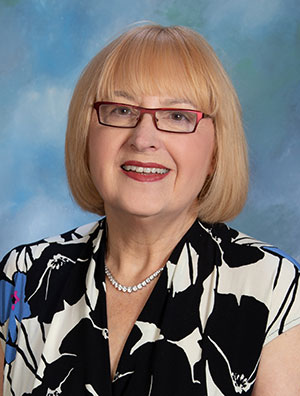
Marie Sonnet, Ph.D.
Marie Sonnet Ph.D., is principal at Sonnet Editing and Consulting and works with graduate students and authors who are writing to finish their academic writing projects. She is an author and co-editor of Resilience: Navigating the Challenges of Modern Life and an author and co-editor of Driving Social Innovation: How Unexpected Leadership is Transforming Society. She is a Fielding Graduate University Institute for Social Innovation Fellow, currently pursuing studies about the experience of belonging among doctoral alums and the potential of an online platform to increase project collaborations among alums. Her doctoral research built on her work in continuous process improvement in healthcare. She studied how organizations can increase their collective resilience capacity by deliberating fostering specific beliefs and behaviors among employees.
Theresa Southam, Ph.D.
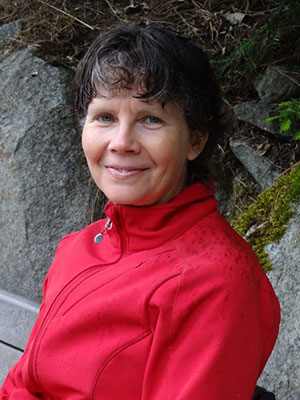
Theresa Southam, Ph.D.
A 2020 Ph.D. in Human and Organizational Development, Theresa is the Department Head of the Teaching and Learning Centre (TLC) at Selkirk College and continues her research as a Fielding ISI Fellow. Theresa coedited Driving Social Innovation How Unexpected Leadership is Transforming Society, released in October, 2022, by Fielding University Press (FUP) and published a chapter on “naturalizing” intergenerational relationships in the book, Intergenerational Exchange Activities as a Social Network toward the Creation of a New Society for Sangaku Press in 2022. Theresa has contributed blog posts , book reviews and published a blog and portfolio piece, Is Being an Ally Enough, for the Association for Anthropology, Gerontology and the Lifecourse. Her dissertation 27,000 Sunrises: Everyday Contributions of Grateful and Giving Age 70+ Adults, can be found here. She is currently writing her own book for FUP on transforming trauma through learning.
Patrice Rosenthal, Ph.D.
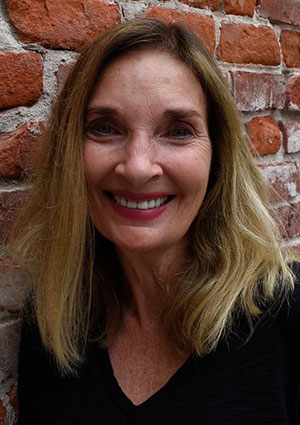
Patrice Rosenthal, Ph.D.
Patrice Rosenthal, Ph.D., is a faculty member in the Human and Organizational Development program of Fielding Graduate University. Prior to joining Fielding, she held faculty positions at the London School of Economics and King’s College, London. She is a board member of the Organization Development and Change Division of the Academy of Management. Her research on topics, such as gender and work, the management and experience of front-line service work, organization change, and employee relations has been published in scholarly journals including Organization, Human Relations, the Journal of Management Studies, Journal of Occupational and Organizational and Psychology, British Journal of Industrial Relations, International Journal of Public Sector Management, and many others. She has provided research consultation to numerous organizations, including Women’s Economic Ventures, Equal Opportunity Commission, Price Waterhouse, Tesco Stores, British Petroleum, UK Department of Work and Pensions, and many others. She is dedicated to doctoral education and the development of strong scholar-practitioners in human and organization development.
Join Over 7,500 Fielding Alumni Located Around The World!
Change the world. Start with yours.™

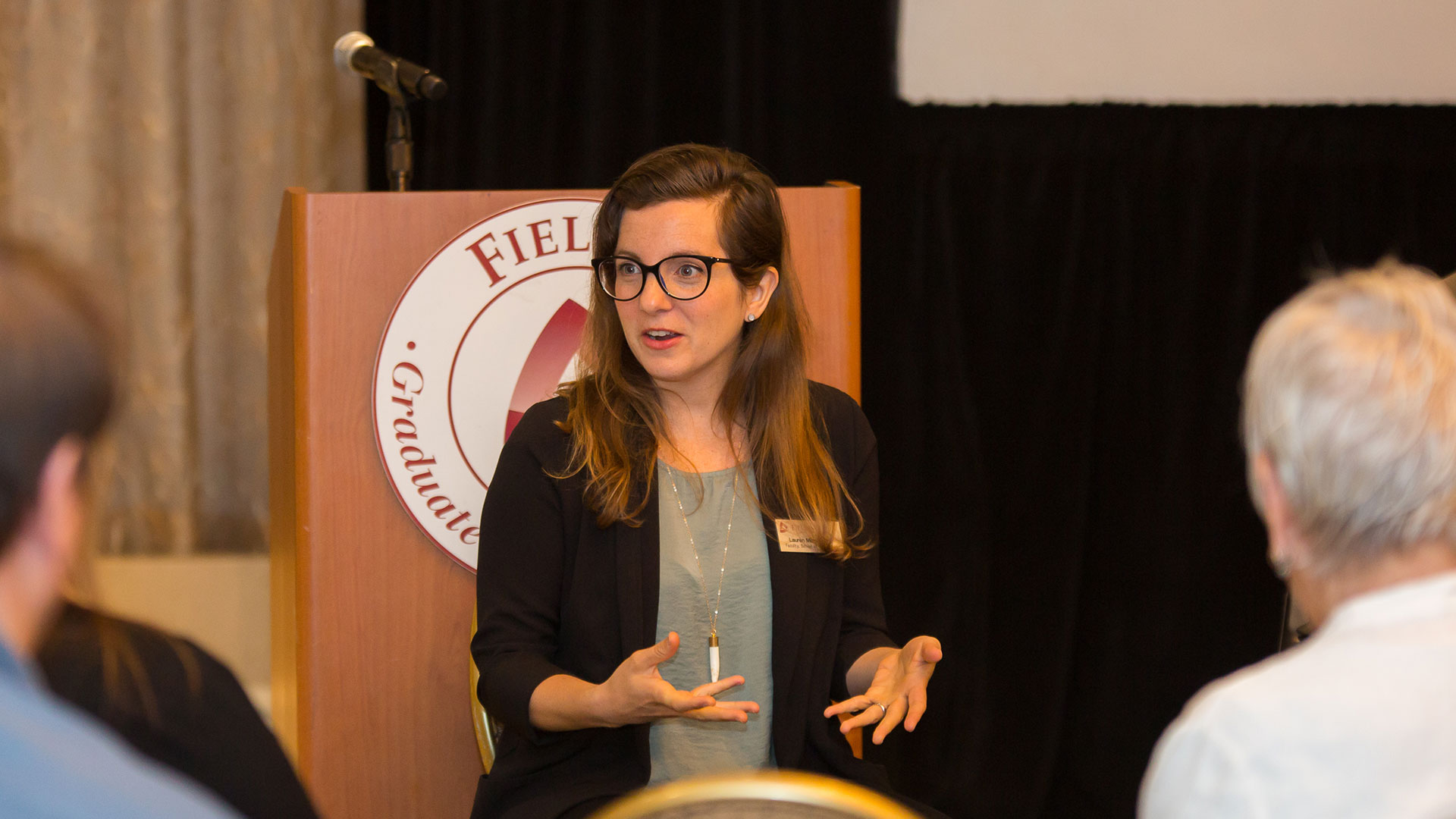
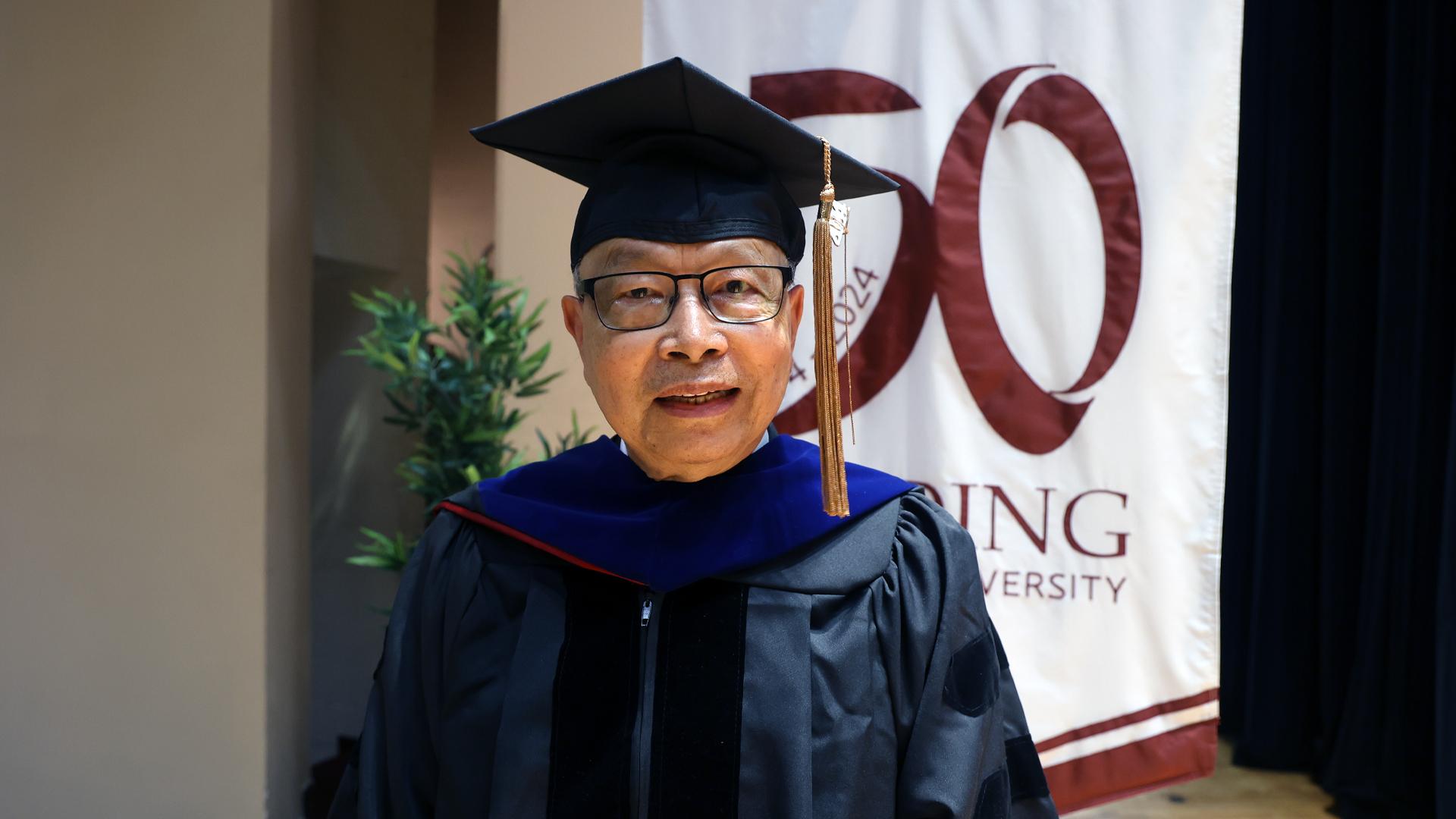



Get Social